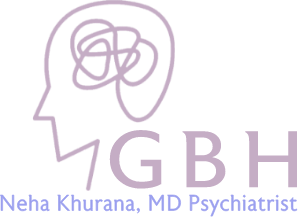Generalized Anxiety Disorder (GAD) Therapy and Treatment in Norcross
Understanding Generalized Anxiety Disorder
Generalized Anxiety Disorder (GAD) has an impact on countless people around the globe. This condition goes beyond simple concern of stress – it creates a constant state of unease that can take over your thoughts, feelings, and everyday activities. Generalized Anxiety Disorder entails showing excessive worry and anxiety about everyday events, often without a clear reason. Those dealing with GAD often find it hard to keep their worries in check even when there’s no obvious reason for stress. With growing age and symptoms, this can result in both physical and mental burnout.
If you’re looking to understand, get help, or find generalized anxiety disorder treatment and therapy in Norcross, GA, Georgia Behavioral Health (GBH) provides tailored care to help you regain a sense of safety, feel heard, and take charge of your life once more.
What Causes Generalized Anxiety Disorder?
The exact root causes of generalized anxiety disorder can’t be known. It can occur due to a combination of genes, brain chemistry, and tough life events. Emotional life changes, trauma, or constant stress can add to it. Research indicates that uneven levels of brain chemicals like serotonin and dopamine might also be involved. No matter when your anxiety begins, Georgia Behavioral Health and our anxiety therapists offer full assessments and targeted solutions. These include generalized anxiety disorder medication, therapy, and lifestyle changes – all designed to help you recover quickly.
Recognizing the Generalized Anxiety Disorder Symptoms
Spotting the signs of generalized anxiety disorder is key to getting the help you need. Many people with GAD don’t realize for years that their pain has a treatment. If you’re often caught in a loop of overthinking, feel mentally drained, or constantly anticipate the worst, you may be living with GAD. A clinical generalized anxiety disorder test can help with identifying the symptoms. At GBH, we walk you through that process with care and precision. A few of the common generalized anxiety disorder symptoms include:
- Constant or excessive worry about various life situations.
- Difficulty managing anxious thoughts.
- Restlessness or feeling on edge.
- Fatigue or feeling tired easily.
- Trouble concentrating or your mind going blank.
- Sleep difficulties. (trouble falling/staying asleep or waking unrested)
- Muscle tension, frequent headaches, or body aches.
- Irritability and low tolerance.
- Avoidance of everyday tasks due to fear of outcomes.
Effective GAD Treatment Options at Georgia Behavioral Health, Norcross
For every individual in Norcross and nearby areas in Georgia, GBH offers personalized generalized anxiety disorder treatment that fits your personal path. At Georgia Behavioral Health, we offer proven methods like Cognitive Behavioral Therapy (CBT), talk therapy, and medication management depending on your needs. Our psychiatrists might suggest anxiety medication to balance brain chemistry and ease severe symptoms.
We also offer coping methods, ways to lower stress, and give emotional support to go with medical care. Whether you’re new to therapy or have tried other treatments before, our team will help you make a plan that works for you. With the right tools, support, and guidance, GAD treatment can be successful.
Why Choose Georgia Behavioral Health for Generalized Anxiety Disorder?
At Georgia Behavioral Health, we bring together compassionate care, clinical expertise, and modern treatment options for people struggling with generalized anxiety disorder. Whether you are seeking therapy, a diagnosis, or help with generalized anxiety disorder medication, our team of therapists and counselors is committed to walking beside you every step of the way.
FAQs
What is the difference between GAD and anxiety?
What are the ways to treat generalized anxiety disorder?
Generalized anxiety disorder can be treated with the help of a licensed mental health provider. A few of the methods used to treat it are:
A few of the methods used to treat it are:
- Cognitive Behavioral Therapy (CBT)
- Group therapy
- Medication
- Lifestyle changes
- Diet changes
- Support groups
- Education
